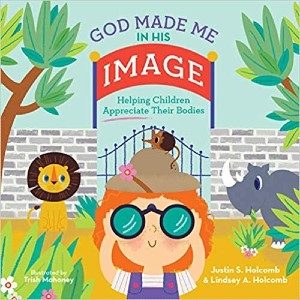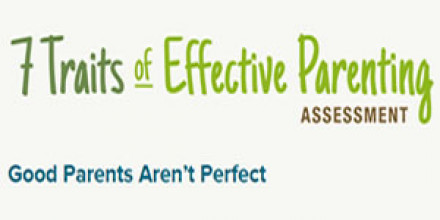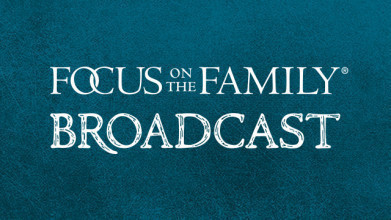
The War of Words
In this Adventures in Odyssey drama, a carelessly uttered word from Eugene creates havoc as it becomes the fashionable insult, resulting in a lesson about the power of words.
Home » Episodes » Focus on the Family Broadcast » Celebrating the Bodies God Gave Us
Preview:
Justin Holcomb: Your son’s more than handsome. He does need to hear that he’s handsome. Mom and dad need to tell him. But think of all of the other ways. “You’re so creative.” “You’re so empathetic.” That, “You’re so thoughtful.” Like, things that they actually do. Let’s pick some way better adjectives.
End of Preview
John Fuller: That’s Justin Holcomb and he and his wife, Lindsey, join us today on Focus on the Family. Thank you for being part of the program. Your host is Focus President and author Jim Daly and I’m John Fuller.
Jim Daly: John, you know children today, they’re just deluged with criticism, I think. You look at the way in elementary school even how kids start ridiculing each other, teasing each other, et cetera. And some of that I think is put into the old bucket of just, “That’s the way it is, that’s how kids treat each other.” But we have to remember, it doesn’t end anymore when school ends. Because of social media, that ridicule, that embarrassment just keeps coming if you’re one of those kids that maybe doesn’t have what it takes at that age, whatever that might be. I remember for me in junior high, I remember I just had freckles on the back of my legs and going to swim class was so embarrassing to me ’cause everybody would point it out, “Look at his freckles.”
John: Mm.
Jim: I don’t know why that should be a problem, but I think being Irish that’s kind of normal. But those are the kinds of things that kids need to be equipped to deal with today and we’re gonna talk about how to help your children be better equipped to know that they’re made in the image of God.
John: Hm. Yeah, and Justin and Lindsey Holcomb will offer some great insights for parents. Justin is a minister and professor of theology at Reformed Theological Seminary and Gordon-Conwell Theological Seminary. And Lindsey is an advocate for survivors of abuse. She works in a non-profit development role and co-founded REST, which stands for Real Escape from the Sex Trade. Justin and Lindsey have two daughters and together they’ve authored this wonderful children’s book that we’ll be talking a little bit about today called, God Made Me in His Image: Helping Children Appreciate Their Bodies. And you can find out more at focusonthefamily.com/broadcast or call 1-800, the letter A, and the word FAMILY.
Jim: Justin and Lindsey, welcome back to Focus on the Family. Good to have you.
Lindsey Holcomb: Thank you.
Justin: Thank you for the invitation back. It’s always good to be here with you all.
Jim: All right, so like I set the program up there a moment ago, I think with junior high and high school particularly, we’re kind of acclimated to the fact that it can be, this can be tough years with a lot of ridicule about your body type and body image issues. Your point is it’s happening at younger and younger ages. So describe how this is becoming more of an issue for children in elementary school.
Justin: Well first, I love the fact that you started out with a boy story ’cause…
Jim: (laughs)
Justin: …most people think this is, you know…
Jim: Oh.
Justin: …a girl’s issue type of things.
Jim: You want more? (laughs)
Justin: I love (laughs)… that’s the thing, all people could be telling stories like that.
Jim: Oh yeah.
Justin: Because we all have that experience, all of us do, and it does start at a very early age. So the, the number one concern for six-to-eight-year old’s is body image. At least half of children…
Jim: That is so sad to hear that.
Justin: …yes.
Jim: Six to eight, I wasn’t even thinking about that really.
Lindsey: That’s kindergarten, first, second, they’re little.
Jim: So what’s contributing to that? Why are children now more aware of their body image than 20 years ago?
Lindsey: One of the things that we have found in the research and just conversations we’ve had with parents is a lot of it goes back to their moms, how the mothers talk about their own body image and their own concerns. And children are so… they are observing everything that their parents say and they’re soaking it all in like sponges. So if they hear their mom talking about certain insecurities when it comes to their body, then it makes them question, “I wonder what’s wrong with me.” Even at a young age at kindergarten, first, second and third grade. Some of the research is showing that girls and boys are very concerned about their body image. It can happen so early. Approximately 80% of all 10-year-old girls have dieted at least once.
Jim: That’s… that’s amazing.
Lindsey: And 10 years of age, that’s fourth grade.
Justin: That’s heartbreaking.
Jim: Yeah, yeah.
Lindsey: That really is sad.
Jim: Well and that’s perhaps the most shocking thing is, you know, we used to talk about airbrushing the models, the whole thing like that. But now boys and girls in elementary school are experiencing these kinds of comparisons. You actually noticed it in your two girls, right, Lindsey? I mean, you have younger kids, 11 and 13. How did they respond to this? And did you wake up at one point and go, “Oh, we’ve got to stop saying this or that.” Or did you self-correct or hear yourself saying some things that caught your attention?
Lindsey: That’s a good question. Well actually they would come home from school kind of telling us, you know, ’cause they’re more petite, on the petite side.
Justin: Also known as short.
Lindsey: Short. (laughs) Justin’s mom is short, his sister’s short, my mom is short, I am on the shorter side. And so they would come home and share with us at dinner, “So and so called me short.” And this would be in fifth grade, and it just would be ongoing. And so we would enter into that conversation with them. “How does that make you feel? Kind of where do you think that’s coming from? How can we frame and shift your thinking about how you’re made in the image of God, and how does that counteract what this child’s saying to you?” But also, I think what we have found is any part of a child’s body is up for scrutiny.
Jim: Oh yeah.
Lindsey: And so how can we, as parents, how can we come alongside them and give them tools to think through these harmful, hurtful things that they’re hearing? ‘Cause they’re going to hear things about their body, they’re going to hear things about other people. Whether it’s through, like Justin listed, TV, music, social media. But parents we need to be on the front end of this and giving them context, how to think through this as a Christian.
Jim: Let me ask you, and get into it, to equip the parents really. What’s the fundamental truth from scripture to teach kids about their body image? How do we get that out of scripture?
Justin: God made you in his image and humans made in the image of God. There’s nothing in all creation that reflects God better than a human who is in the image of God. And there is inherent worth in that. God made you on purpose the way you are, and he wants you in his world. Like, that’s a message that undermines that silly cultural, “You’re not measuring up.” It’s your Creator is bestowing to you your identity at birth.
Jim: Right, and that’s a big bucket. I mean, when you get down to the expression of that in humanity, you have tall people, short people, big people, small people…
Lindsey: (laughs)
Jim: …everything we’re talking about, freckles, you know?
Justin: Yeah.
Jim: So what does that mean, you know, really applicably to be made in God’s image? What are the nitty gritty nuts and bolts of that?
Justin: Well, your gifting. How you’re gifted. God, so in Genesis, God said, “Here’s a garden and I want you to cultivate this garden. There are things for you to do. Multiply and have dominion.” And that’s the gift. And the idea of being in the image of God, I mean, the idea comes from the ancient near east. ‘Cause I am a seminary professor, and this made it into this book.
Jim: This is good, now we’re going.
Justin: You gotta teach the kids… ’cause it’s all based on the doctrine of creation. There was nothing and God wanted something to exist, and he really wanted humans to exist. ‘Cause when he talks about creating things on day one, two, three and four, it’s good. Get the humans, it’s good, good. It’s tov-tov in Hebrew. And what happened is, Moses, writing Genesis, looked around and saw all these kings who would erect statutes about themself to honor themselves, and set up their statues all around their kingdom. So Moses, inspired by God, said, “That’s what image of God looks like. God is setting up images of himself all around ’cause God wants more images to fill the earth and glorify him,” and this is a picture that this is God’s world. And so here’s a garden, cultivate it. And so what it means is that the multiethnic multitude that you see in Daniel and in Revelation 5 about people from different tongues, languages, tribes and nations glorifying God, that’s the fulfillment of the original call from being the image of God. That’s helpful to see. Because then children start seeing all the diversity of difference and going, wait a second, taller, shorter, slender, larger…
Jim: Right.
Justin: …different colored skin, freckles, all of that…
Jim: And I guess that’s the human thing though. We get locked into this is the image of God.
Justin: Yes.
Lindsey: Mm.
Jim: Rather than the variety of God’s image in people. Right? I mean think about it, skin color. It’s such a ridiculous thing, meaning why does that define so much of our interaction between races, et cetera. ‘Cause it’s just pigmentation, right?
Justin: In every culture. Every culture…
Jim: Yeah.
Justin: …has something about a sliding scale and how light or dark one’s skin is. So we’ve been in Africa a few times and the way people would talk about darker colored skin versus lighter colored…
Jim: Right.
Justin: …black skin is. So every culture has that dimension.
Jim: Do you think that’s rooted in our sin nature? That we pounce on differences…
Justin: Absolutely.
Jim: …rather than embrace differences that are irrelevant, really, to our humanity.
Justin: Yeah, when you have the good creation set up and you have sin invading and vandalizing the piece of the garden, what you end up seeing is people become inward turned, inward focused. We were created to worship God and to love our neighbor. And as soon as sin enters the world, you have people doing bad worship, you know, Cain and Abel, and then you have exploiting of other people. So what I think happens is that we have this curved inward nature where we focus on ourselves. There’s actually a sociological principle called the homogenous unit principle. All that means is people like to be around people who are like them.
Jim: Right.
Justin: And you see that in churches and cultures and neighborhoods. But that’s a whittling down of the wonderful scope of possibilities of reflections of the image of God to well, “People who are 48, white men, are the people who I’m most comfortable with.” And, and so I think that’s part of the problem is that sin ends up getting our focus back on ourselves and not the original plan that God had for his good creation.
Jim: Let’s stick with culture for just a minute. How has our culture made it easier for kids to exclude one another? How does the culture feed into that?
Justin: When you have a celebrity culture…
John: Right, which we have.
Justin: which we’re in the throes of…
Lindsey: Hm.
Justin: …and, and I’m shaped by it, too. That’s the thing. It’s not just the children, but I start paying attention to who the famous people are and what they look like, I have that voice in my head that says, “Well, you’re not so and so and you don’t step up to that standard.” So when you have a celebrity culture that celebrates peripheral secondary things that are not really that important, wealth, airbrushed good looks. And letting people get shaped without calling that out, that’s the most powerful thing a parent can do, I think, is stop the movie and go, “Hold on, let’s talk about this.”
Lindsey: Mm-hmm.
Justin: Let’s pull the rug out from underneath the lie of what our culture is telling you about your worth. That’s the opposite. You’re not worthy because you did this, look like this, said this, didn’t say this. You’re worthy because of who you are and who God made you to be. And so I think finding those moments to point out the lie that’s whispering in our children’s ears, and then, which is what Lindsey’s so good at is pointing out, where we’re vulnerable. She’ll frequently remind the girls, “Hey, you know, we weren’t always successful.” (laughs)
Jim: (laughs)
Justin: This took decades to get to in the sense of being comfortable with our own vulnerability and talking about, showing them what it looks like to say the truth about ourselves where we feel insecure or to each other and to the girls.
Jim: Mm-hmm. Right.
John: Yeah, thinking biblically and critically about what’s going on in the culture and what our children are experiencing regarding body image. That’s our topic today on Focus on the Family with Justin and Lindsey Holcomb. They’ve written a children’s book that is a really a great primer. It’ll open up some doors of conversation for you and your child. It’s called God Made Me in His Image: Helping Children Appreciate Their Bodies, and we’d love to send a copy of that to you. Just get in touch with us. Our number is 800, the letter A and the word FAMILY. Or stop by focusonthefamily.com/broadcast.
Jim: Lindsey, let me pick up on that, because it’s touching this issue of empathy. In preparation for the show I was doing some research, and I think it was University of Michigan, from 2010, did some research and analyzed the results. They found a 40% decline in college student’s ability to empathize, and they were saying it was directly related to technology. That we’ve kind of become coarse because of social media.
Lindsey: Absolutely.
Jim: We’re just constantly ridiculing each other and it just kind of deadened that ability to have empathy for others.
Lindsey: That sounds right.
Jim: That’s a very concerning issue, isn’t it?
Lindsey: That is. It’s a sad, sad number. But that does make sense ’cause if, the more time you’re on your screen, whether that’s texting or on social media, the less you are engaging just in conversation and learning how to have those social skills. Another thing that parents can equip their children with, how do you even engage technology in a way that you can be empathetic and encouraging but going back to those basic skills of how to have conversations. But like I go back to, kids are watching. I was even shocked when I see some of my adult friends, the things that they will post on Facebook. And they feel so brazen to post a comment that is hurtful, whether it’s to like a certain people group or a political group and I’m like, “Goodness, you would never say this to someone’s face.” But the kids are watching that, they’re reading it, they’re hearing about it. Going back to parents setting good examples, not criticizing other people or bodies if we go back to the body example. If children see their parents judging other people based on appearance or thoughts or, you know, lifestyle then they are going to pick up on those things as well. How can we, as parents, teach our children to think critically but also compassionately as Christians, as children of God?
Jim: Give us an example that really helps because sometimes we’re kind of deaf and blind to this, too, because we’re just moving through the day. As parents, we may not even know how we are expressing that.
Lindsey: Absolutely.
Justin: Well let’s go back. Adjectives is what gets my attention because this has been something that has annoyed me, is watching online but also just watching in conversations. I started noticing in a span of a week as I am scrolling through, you know, social media, comments about boys and girls. “Oh this is, my daughter, she’s so beautiful, my son is so handsome, he’s a stud, lady killer.”
Jim: (laughs) Geeze.
Justin: And just things and I’m thinking what are you saying?
Jim: Wow.
Justin: First of all, you look ridiculous about saying this about your kid. But the fact that that’s what children are seeing, that’s what’s being prioritized, and I just asked everyone, I was like, “Can we please find different adjectives? Please?” Because one of the most powerful things I can do for my daughters, in a culture that’s gonna make them feel ugly, short, big eyebrows, whatever, I mean, the culture and their friends are going to bestow to them an identity. One of the most powerful things as dad, with my dad voice is look at them and say, “You’re beautiful.” They need to have a category of a dad saying that to them. But if all I’m saying to my daughters is you’re beautiful, I’m making that their worth. The way they get my attention is by being beautiful. And so I started at an early age going through, and this was from Lindsey going, “That’s great, but they’re also beautiful, sweet, smart and strong.” So you’re so strong.” So trying to find other ways. “You’re adventurous, you’re courageous.” Your son’s more than handsome. He does need to hear that he’s handsome. Mom and dad need to tell him. But think of all of the other ways. “You’re so creative.” “You’re so empathetic.” “You’re so thoughtful.” Like things that they actually do, let’s pick some way better adjectives. And maybe the reason that we’re picking the adjectives that we’re picking is because maybe I’m not secure about how I look. You know, maybe I don’t like my receding hairline and my big eyebrows or my gray beard. Like maybe, maybe that’s infiltrating. Maybe some self-awareness on the parent’s side would be really helpful for their kids.
John: Yeah, Justin, I was gonna ask you about that. I’m thinking that maybe these conversations don’t happen with our children because I don’t feel so good about myself and so how can I possibly help them feel good about themselves? So, is it my own insecurities that prevents me from choosing the different adjectives?
Justin: I’m going to do some research on this at some point…
Lindsey: (laughs)
Justin: …but that looks, anecdotally, to be what’s happening is that, unfortunately, there are children who are being parented by people who have a certain limp. And there’s a, I have compassion for this, it’s not frustration or anger. I said annoyance earlier on about the parents and adjectives. But I have compassion for the parent is trying to figure out, like, “How do I do this, the culture’s telling them this, they’re beautiful. I’m just trying to be a good parent and say they’re beautiful and now I’m messing that up, too.”
Lindsey: (laughs)
Justin: Like no, I get it, but they feel insecure. There was one story that Lindsey and I experienced. It was during the summer and a mom and dad with our kids were out at the pool and a husband complimented his wife and said, “Ah, it’s our time, it’s bathing suit time. Yay.” He was kind of making a joke about, you know, bathing suit time…
Lindsey: I get to see you in a bathing suit.
Justin: Get to see you in a bathing suit.
Lindsey: Yeah.
Justin: And the mom grabbed her side and grabbed where she thought there were fat rolls that she wasn’t happy with. In front of her children and our children and said, “Oh, you think these fat rolls are attractive?” And just did that and I thought, “Ooo.” There’s a voice in her head that’s really powerful for her to think as a go to impulse to do that in front of her husband, who just complimented her, and in front of her children, and in front of our children. Like we, we addressed it pretty quickly. We were like, “Whoa, whoa, whoa, hold on second here.” We pulled the girls aside and had to talk about that. But there’s something going on. She’s feeling burdened from the culture, maybe she wasn’t complimented as a child. Maybe she experienced some type of abuse where that would be a common way to respond about her own comfort and her own skin. So I do think that one of the most powerful things that parents could do is to address their own sense of their own security and body image. I think that’ll go a long way with parents.
Jim: Yeah. It’s, it’s so good and so true and that’s what you’re trying to do is build up that child’s sense of self-worth as well. And that is healthy. You don’t want them to be conceded obviously or have too much pride.
Lindsey: Sure.
Jim: But to be confident is a good thing. What about those children, they may have physical impairment? I mean we’re kind of cruising along the way here that we’re all prince and princesses.
Lindsey: Hm.
Jim: You know, fully capable of things. There are parents who have children that, you know, they don’t walk the same, they don’t talk the same, they don’t look the same. How does that parent provide that child with the hope that they are, too, made in God’s image and they need to be confident in that?
Lindsey: Well I think two things. One, if you’re the parent of a child with a physical disability, you have such a role to play of reminding him or her that those physical impairments do not negate their worth as a child of God. So walking them through that as an image bearer, it doesn’t diminish any of the other qualities God has given them and so that’s one part. But then the second part is a parent who has a child who doesn’t have a physical impairment, you have an even greater role to guide and instruct your children to see others with compassion like you were talking earlier…
Jim: Mm-hmm. Yeah.
Lindsey: …with empathy. How can you really train up your kids, “Hey, when you see someone with a physical disability or with a mental disability, how can you engage with them? What are some things you can do? Go up and say hi, go up and, you know, ask them questions.” And kind of you can practice that a little bit so they’re not pointing or what’s that. But really on the front end, get ahead of it and explain to them you might see some children that have trouble walking or are in a wheelchair or maybe, have trouble with loud noises. We’re gonna see a lot more children, as we already are, just with symptoms of autism. You know, the spectrum is wide. But really helping our kids to understand how to engage with that rather than pointing. But really reminding them, they are made in the image of God. They are an image bearer; they have inherent worth no matter their disability. They are not an accident, an oops, you know. They are just as important with so many qualities.
Jim: Yeah, it’s really good. At the very end here, I do wanna discuss bullying because that seems to be a, you know, really horrific situation for some kids. That’s something with my boys, I would ask them frequently. I think Jean would even say, “Man, you’re maybe asking them too often.” But I wanted to make sure they were in a good place. I guess that’s a better criticism than we never talked to them about it. So I would every two or three weeks, “Are you guys doing, okay?” You know, “Are you getting bullied?” “Are you bullying anybody?” I put it both directions.
Lindsey: Amen.
Jim: And you know, I think they did well. They never said that they were or that they had. And so I think that’s a good thing, but how would you recommend a parent engage their children with the issue of bullying, either as the recipient or as the giver?
Lindsey: Absolutely. Well I think your checking in is spot on. Like you did it perfectly. (laughs)
Jim: Well I don’t know about that, but consistently.
Lindsey: You did. I think consistently checking in, you know, asking “Who did you eat lunch with today? Who are you hanging out with?” Get to know their friends. You know, invite them over. But checking in on both ends. Like, you know, “Are you making anyone feel excluded, are you leaving anyone out?” Ask them, you know, “Who seems to be kind of on their own?” And then that kind of gives you a gauge of…
Jim: Yeah, that’s good.
Lindsey: …of some people in there. Kind of just so you have a pulse on the situation at school. But if your child comes to you and says, “I’m being bullied.” Definitely I would encourage parents to take it seriously. Don’t just, ‘Oh, it’s just a phase,” or, you know, “You’ll get stronger.” “Pull yourself up by your own bootstraps.” Don’t do that. There are a couple things we would encourage parents to focus with their children on, of course. Let’s talk about your worth. Let’s go back to the basics, what we’ve been talking about. “Whose child, are you?” Kind of get your foundation set. “You’re made in the image of God.” Reminding them of the positive attributes that they have. So that’s a great place to start. Then also, make a plan. You know, let’s talk about a good plan. Like, “Who are some people you can seek out that you think are safe and kind?” Whether that’s teachers or other students. “Who can we go and talk to?” ‘Cause you want your child to feel like you’re advocating for them and you’re hearing them and not just passing this off. You know, what are some things your child can do? Especially if they’re at a certain age, how can they advocate for themself while you also come alongside them?
So I would say, you know, middle school and high school like, okay, “Who can you seek out as a teacher to go and talk to?” You know, in our school it’s copy me on the email, as a parent, just that’s our safety protocol at the school, but let’s go and talk to the headmaster. Let’s go and talk to the principal. Together let’s make a plan so that your child knows this is serious. This isn’t something that my parent is just gonna pass off. Because I think what happens so often when we don’t talk about things, our kids feel like, “Well, they don’t get it’ or “It’s a nuisance to them” or “They won’t understand so I’m not gonna bring it up.” So if you’re showing your kid “Yes, I do think this is serious, I’m concerned,” you know, “I want better, better options for you, let’s think through this and make a plan of what can be practical.”
Justin: The advocating is what stood out to me from learning, of watching Lindsey with the girls. I would want to get in there and protect. Kind of do my thing, like I’ll step in. But she would advocate, but she would empower them to find their voice, to figure out how they’re going to talk about it with their teacher, and then be looped in. It wasn’t all or nothing. And that’s what was really fun to watch. Well yeah, this is how you disciple your children and parent them to actually finding their own voice. And my way would have been really strong on the advocating but not on the empowering. But I think across the board, something that we have noticed anecdotally is we encourage other parents connected to our children and in our church, advocate for them. Take this seriously. That’s what’s heartbreaking is, “We know what another child just said to your child and how devastating that looked, please advocate for your child.” They need you. And not to dismiss it. “Hey, this is just what kids do, this is part of growing up, it’ll toughen them up a little bit.” Sure, life is gonna toughen them up. Life’s got a lot of toughening up moments. We had one story where there was a racist comment said to a child. And our daughter, because she already had her voice, knew how to respond. That was amazing.
Jim: Yeah.
Justin: Like, watching her in the moment respond appropriately because she saw someone else’s nervous laughter, she said, “Dad she was laughing, but they were saying really mean things. Why do you think…” I said, “What do you think?” She said, “…it looked nervous. It looked like she was trying to hide something.” I thought, “She sees it.” Like that’s the empathy.
Lindsey: Mm-hmm.
Justin: That they learn primarily from their mom just really diving in, being really gifted in that way.
Jim: Yeah, and I think that’s when you know you’ve actually hit the mark as a parent. When your kids can express that empathy, engage in those conversations and those are really good moments and you go, “Okay, my kid’s heart leans in the right direction.” Right?
Lindsey: Absolutely.
Jim: Doesn’t mean it’s perfect, you know, that they’re always gonna make the right decision, right? But when you see them having empathy for their friends or for people that are being ridiculed or shamed, that’s a good moment. Man this has been terrific. And again, the book, God Made Me in His Image: Helping Children Appreciate Their Bodies. Really aimed at two-to-10-year-olds. It sets the foundation for your children to better understand what God intended for us in this life and equips them to do better in their relationships in elementary school, in junior high, high school, home school, doesn’t matter. It just helps them to do better. Thanks for being with us today, really appreciate it.
Lindsey: Thanks for having us on.
Justin: Thank you, and thank you for the questions but also the, the heartbeat of…
Jim: Oh, sure.
Justin: …you all drill down to… it’s nice ’cause it’s not just the stats and the scary stuff, but getting down to the, the heart of the children and the parents, it’s beautiful.
Jim: Makes it a lot more fun to have that conversation. But I hope people will engage. And, if you can order a copy from Focus on the Family, remember, we’re not paying shareholders, all that goes right back into ministry, which is great. And if you can make a monthly gift, that’s wonderful. It helps keep the budget steady, or a onetime gift is fine. But if you make either of those, we’ll send you a copy of the book as our way of saying thank you for joining us in ministry.
John: Yeah, donate today to get a copy of this great book, God Made Me in His Image. It’ll further your conversations with your kids. Our number is 800, the letter A and the word FAMILY, or stop by focusonthefamily.com/broadcast.
And while you’re online, be sure to take a few minutes and fill out our free Parenting Assessment. We’ll link over to the website for that. it is a really helpful little tool to equip you with knowledge of where you’re strong in your parenting and maybe an area or two of growth. Very practical. And we’ll send follow up articles and resources to help you grow as a mom or a dad. Again, the link for our Parenting Assessment is on the website.
And next time, Dr. Gary Chapman explains why forgiveness is essential for having a good relationship.
Preview:
Dr. Gary Chapman: We don’t have to be perfect to have good marriages. We do have to deal with our failure. We do have to keep the walls torn down.
End of Preview
John: That’s next time on Focus on the Family with Jim Daly. On behalf of Jim and the team, thanks for joining us today for Focus on the Family. I’m John Fuller inviting you back as we once again help you and your family thrive in Christ.

Justin Holcomb is a minister and a professor who teaches theology and apologetics at Gordon-Conwell Theological Seminary and Reformed Theological Seminary. He holds a Ph.D. in theology from Emory University and has authored, co-authored or edited more than 20 books. Justin has written several books with his wife, Lindsey, including two books for survivors of abuse (Rid of My Disgrace and Is It My Fault?) and three children’s books (God Made All of Me, God Made Babies, and God Made Me in His Image). God Made All of Me focuses on helping parents protect their children from sexual abuse, a subject Lindsey is especially well-acquainted with as a former case manager at a sexual assault crisis center and a domestic violence shelter. Justin and Lindsey helped co-found REST, an organization dedicated to rescuing and protecting women and girls from the sex trafficking trade. The Holcombs reside in Orlando and have two young children. Learn more about their book God Made All of Me at the website https://justinholcomb.com/books/.

Receive the book God Made Me in His Image and the audio download of the broadcast "Celebrating the Bodies God Gave Us" for your donation of any amount!

Visit our online store and purchase a CD of today's program for yourself or to share with a friend.

There's no parenting formula to follow, but there are ways you can grow every day. This assessment gives parents an honest look at their unique strengths, plus some areas that could use a little help.

Throughout Scripture, we see God working to redeem a people for himself, a people from every tribe and tongue and nation – colorful and diverse.

What really is beauty? Depending on who (or more specifically where) you ask, you’ll get a different answer. Train your kids to look in the right places for beauty.

Body image issues and eating disorders are rooted in cultural messages – so how can we help our kids overcome them?

Talking to your daughter through the years about her worth, identity, and beauty requires your consistent compassion and investment. Learn more about how to maintain these conversations throughout each age and stage of her life.

Justin and Lindsey Holcomb offer practical advice for how parents can safeguard their kids from sexual abuse in a discussion based on their book God Made All of Me: A Book to Help Children Protect Their Bodies.

In this Adventures in Odyssey drama, a carelessly uttered word from Eugene creates havoc as it becomes the fashionable insult, resulting in a lesson about the power of words.

This discussion offers a preview of Volume #16 “Cultures in Conflict” from the That The World May Know video series, available below.

Debra Fileta will help couples better understand the four seasons of healthy relationships, what to expect during each one, and how to carefully navigate them for a stronger marriage. (Part 1 of 2)

Larnelle Harris shares stories about how God redeemed the dysfunctional past of his parents, the many African-American teachers who sacrificed their time and energy to give young men like himself a better future, and how his faithfulness to godly principles gave him greater opportunities and career success than anything else.

Amy Carroll shares how her perfectionism led to her being discontent in her marriage for over a decade, how she learned to find value in who Christ is, not in what she does, and practical ways everyone can accept the messiness of marriage and of life.

Jonathan McKee offers parents practical advice and encouragement in a discussion based on his book If I Had a Parenting Do Over: 7 Vital Changes I’d Make.